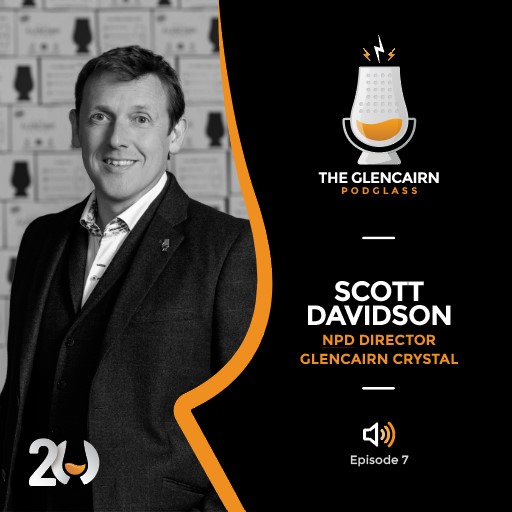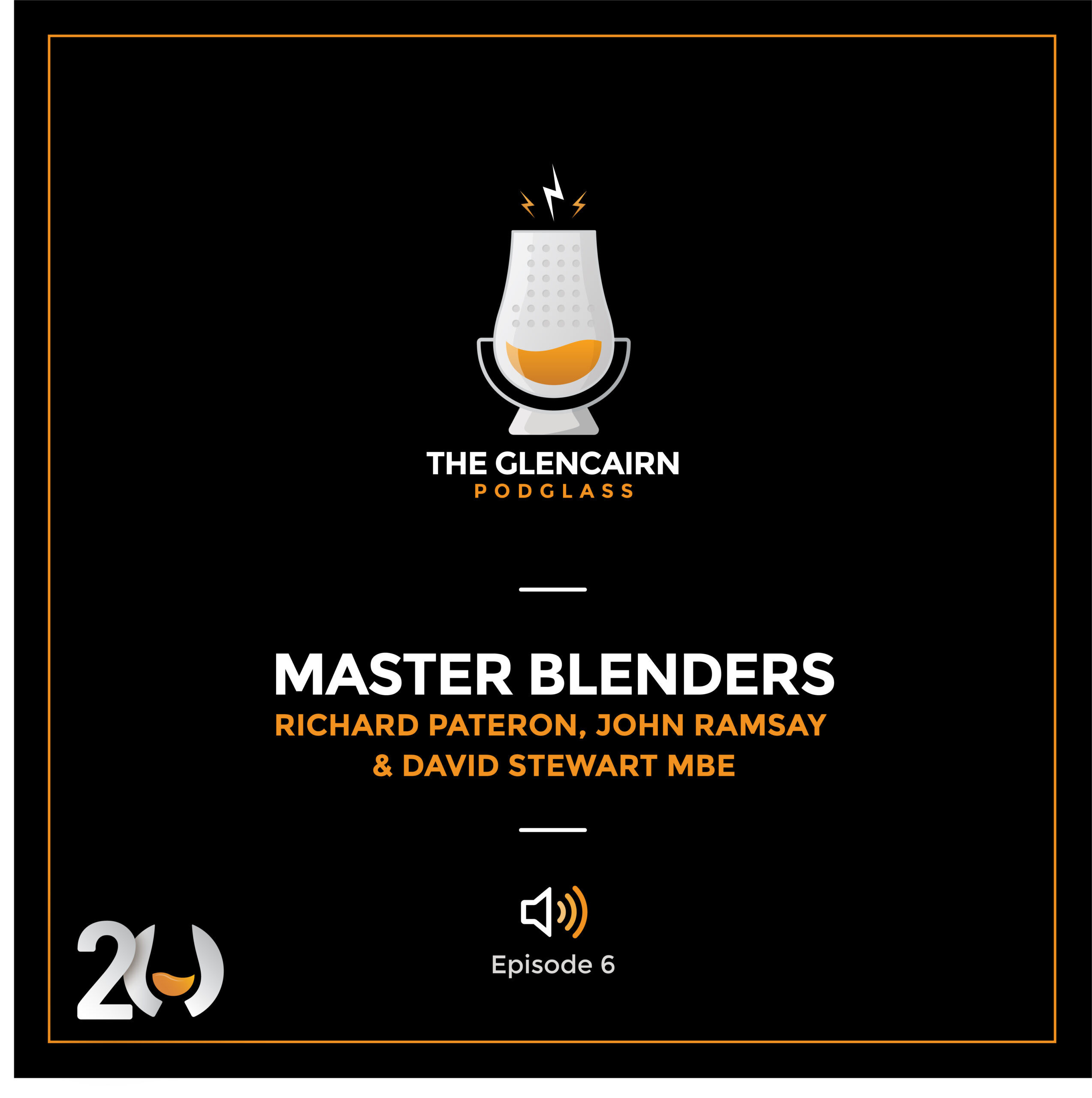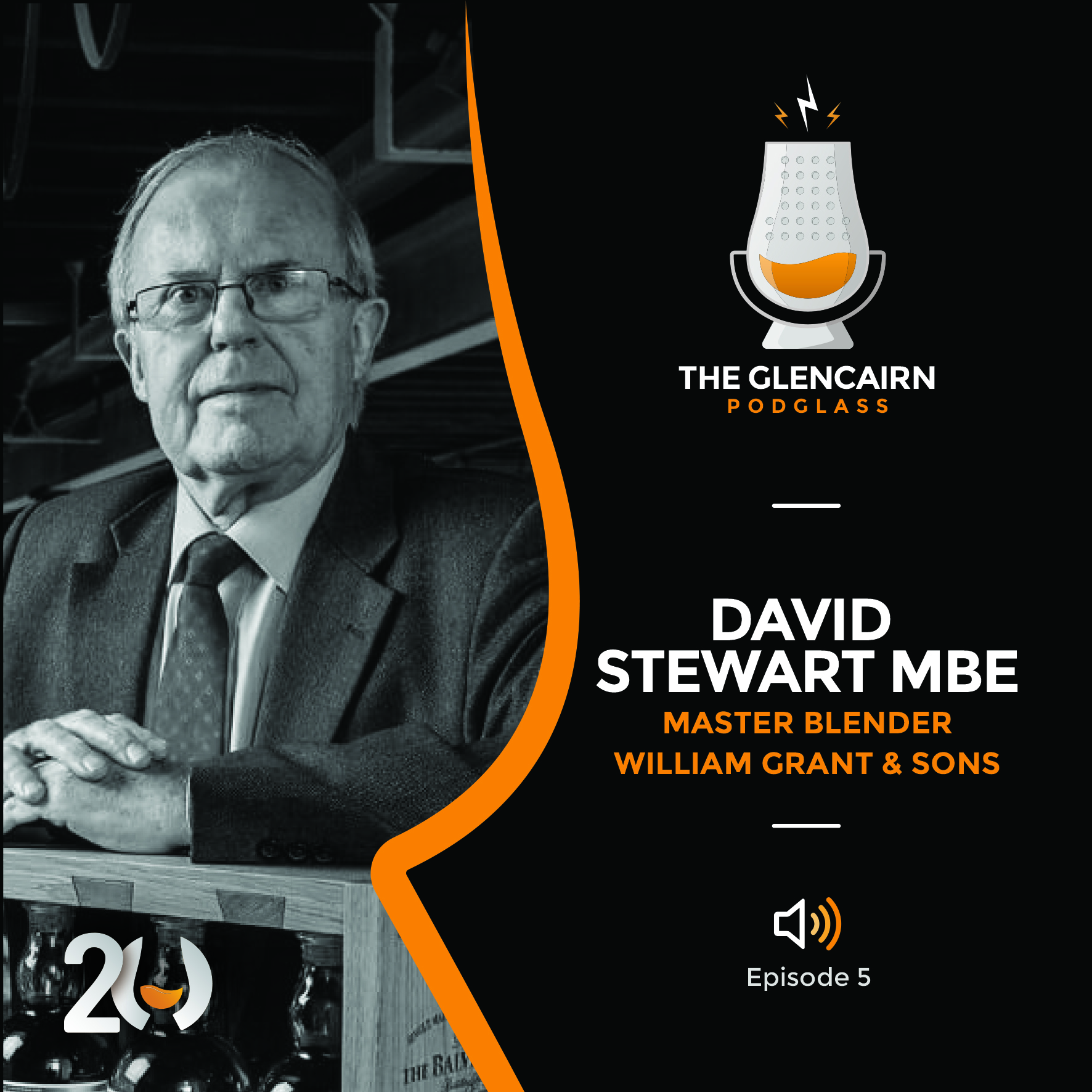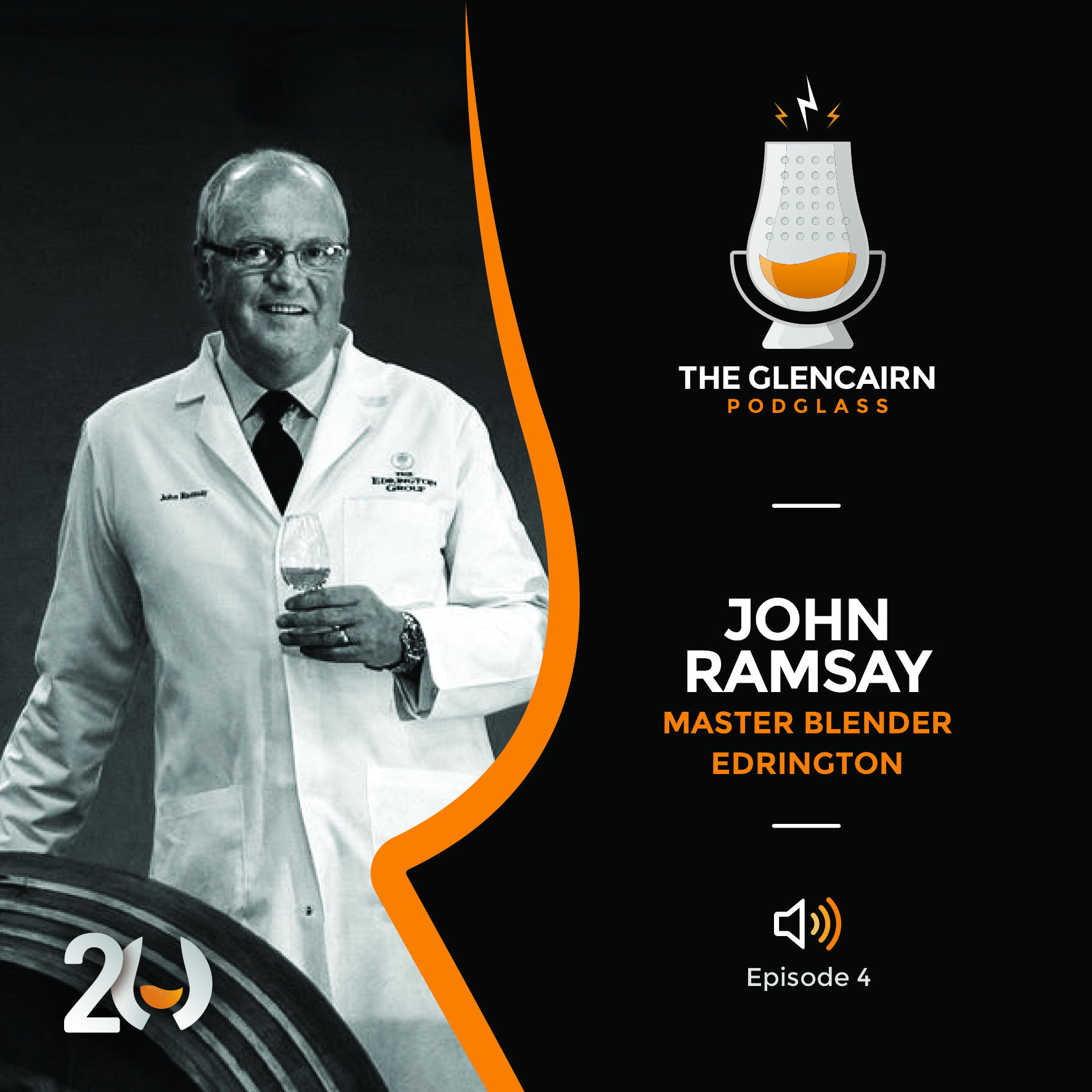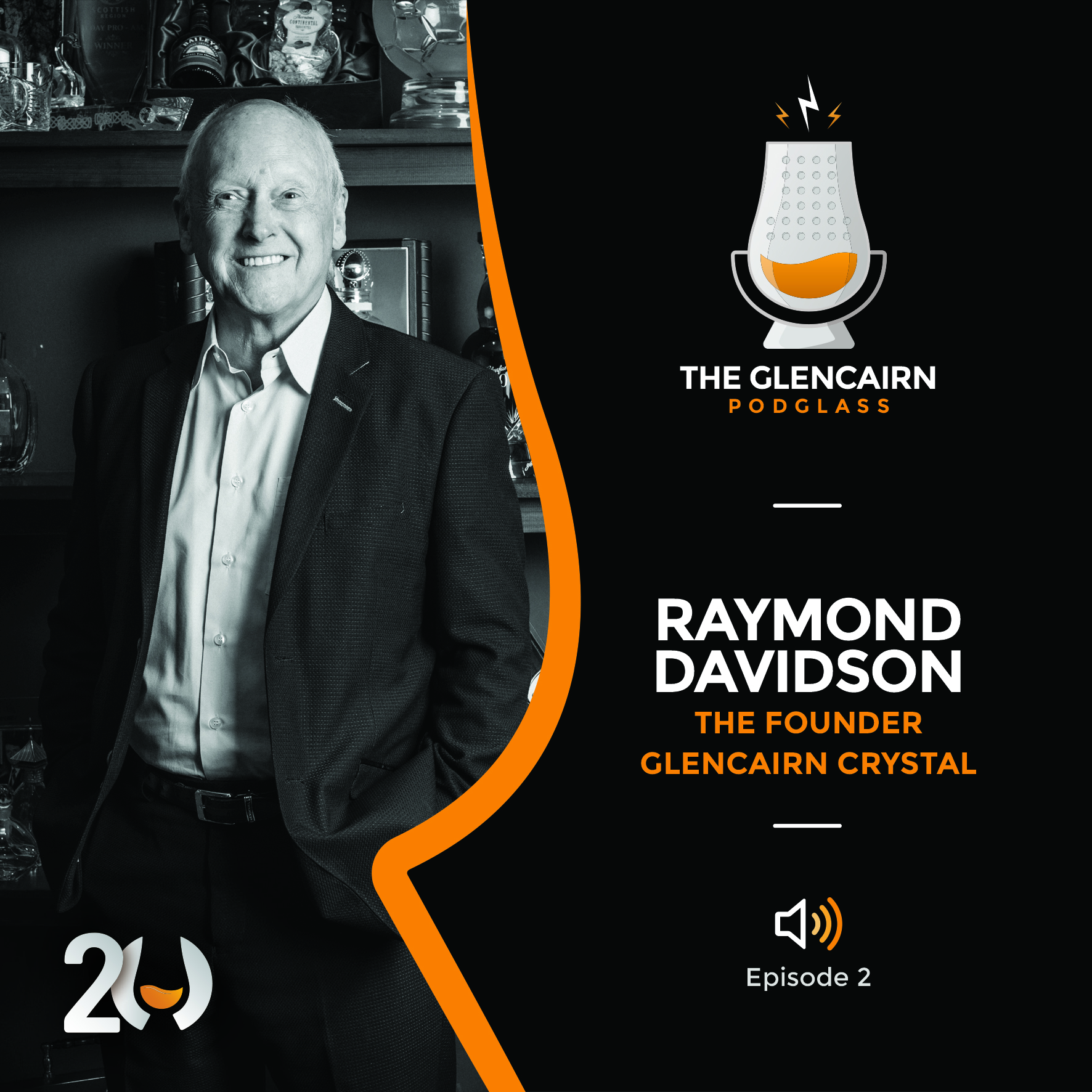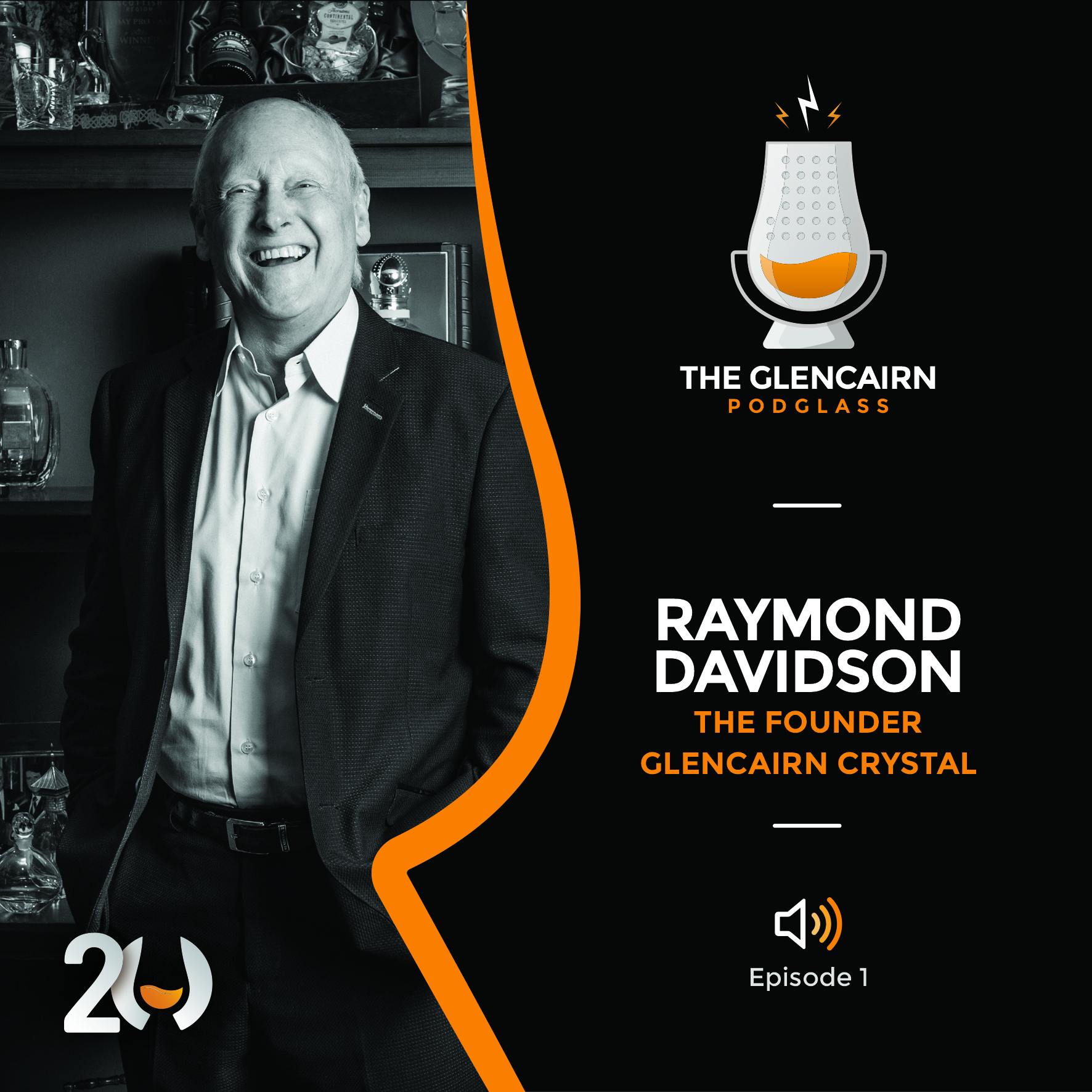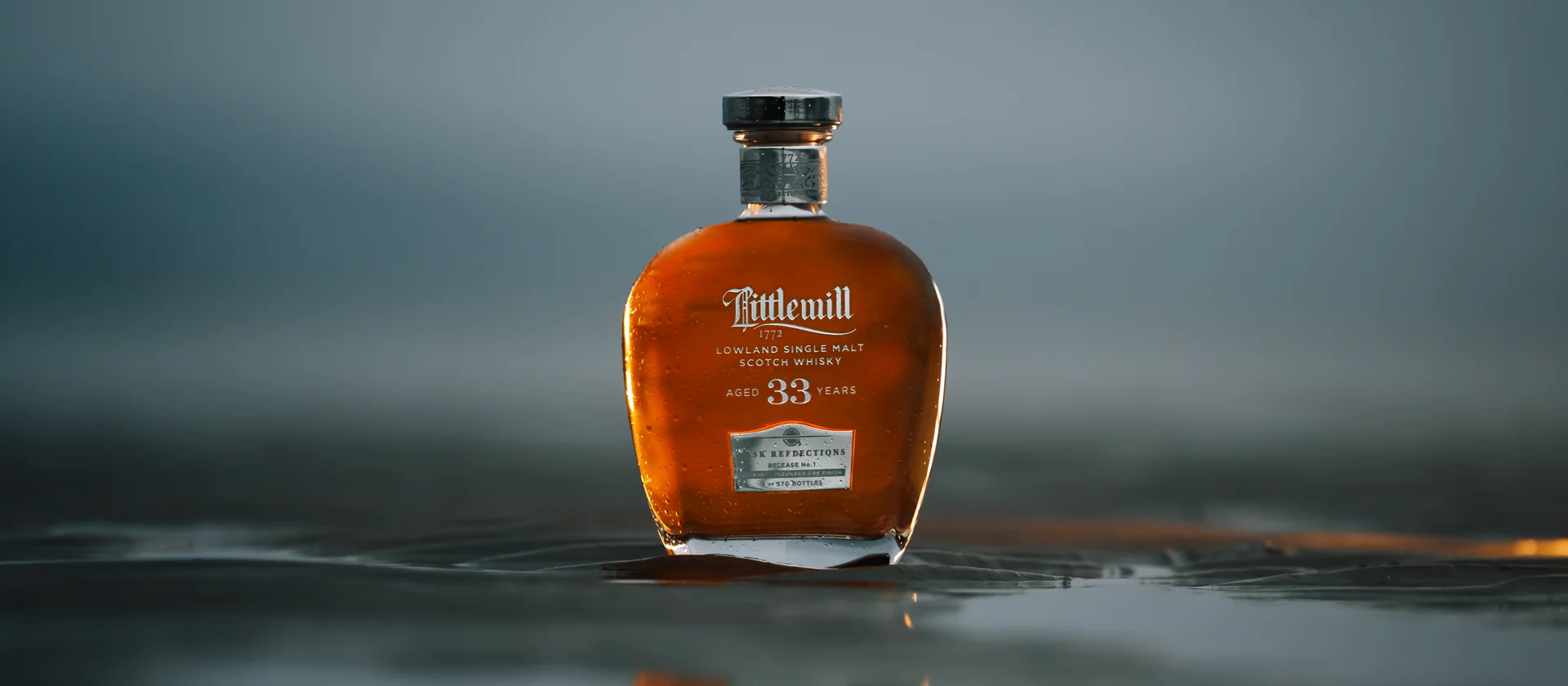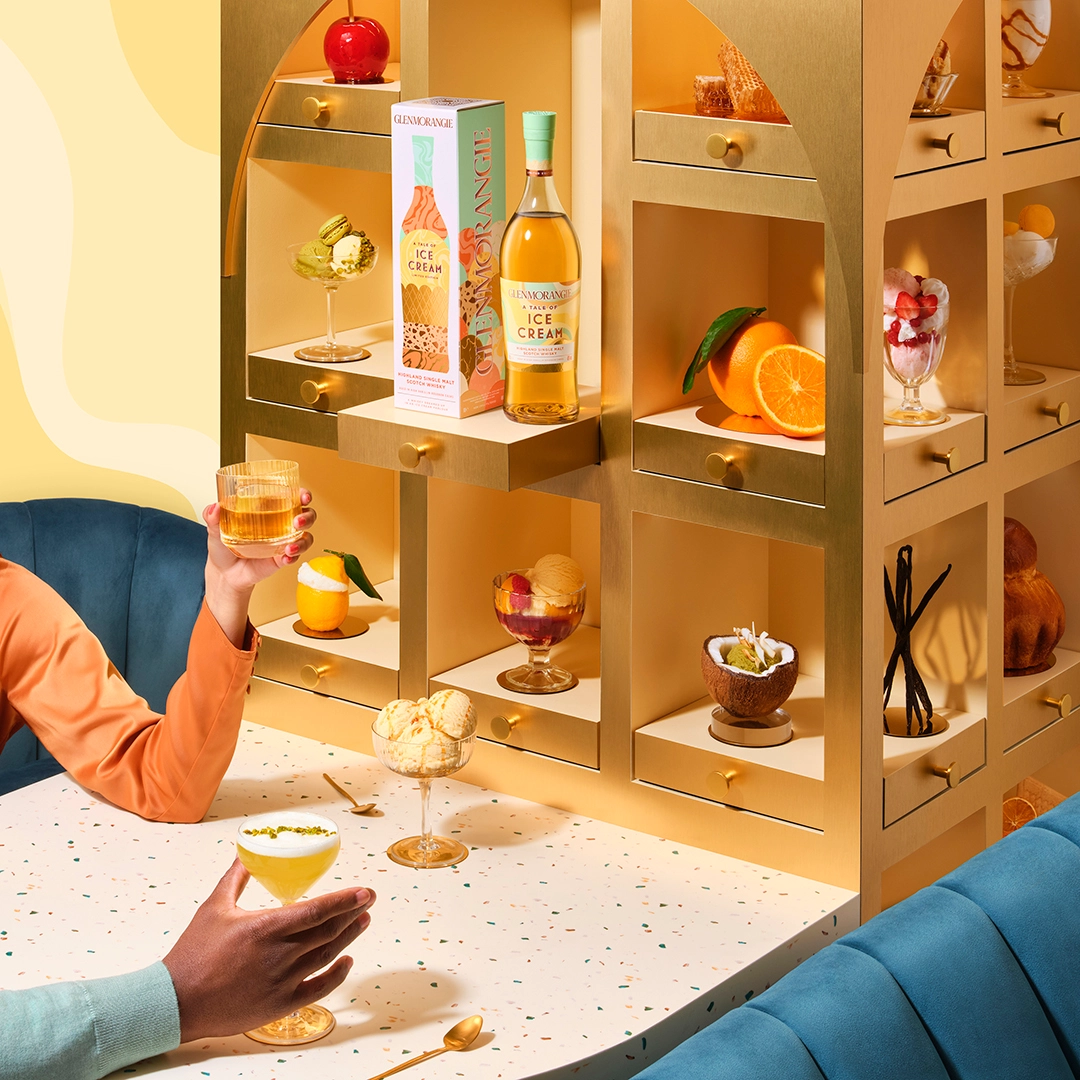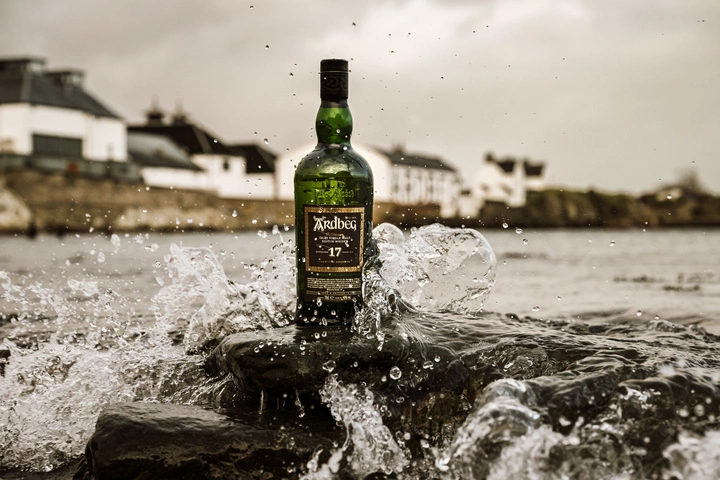Glencairn Podglass - Episode 7 with Scott Davidson
Glencairn Podglass - Episode 7
The Glencairn Podglass brings you exclusive interviews with master blenders and industry experts, offering unparalleled insights into the whisky world.
Listeners can expect to hear first-hand stories about whisky production, blending techniques, and the craftsmanship behind every bottle.
Episode 7: A Conversation with Scott Davidson on New Product Development at Glencairn
In Episode 7 of the Glencairn Podglass, we sit down with Scott Davidson, New Product Development Director at Glencairn. Scott shares his insights into the development of new products and innovations at Glencairn Crystal.
Glencairn Podglass - Episode 6 with The Master Blenders
Glencairn Podglass - Episode 6
The Glencairn Podglass brings you exclusive interviews with master blenders and industry experts, offering unparalleled insights into the whisky world.
Listeners can expect to hear first-hand stories about whisky production, blending techniques, and the craftsmanship behind every bottle.
Episode 6: Surprising Insights from Master Blenders Richard Paterson, John Ramsay, and David Stewart
In Episode 6 of the Glencairn Podglass, we bring together master blenders Richard Paterson, John Ramsay, and David Stewart. They share insights into the whisky industry, revealing what has surprised them most throughout their distinguished careers.
Glencairn Podglass - Episode 5 with David Stewart MBE
Glencairn Podglass - Episode 5
The Glencairn Podglass brings you exclusive interviews with master blenders and industry experts, offering unparalleled insights into the whisky world.
Listeners can expect to hear first-hand stories about whisky production, blending techniques, and the craftsmanship behind every bottle.
Episode 5: A Conversation with David Stewart MBE, Master Blender of William Grant & Sons
In this episode of the Glencairn Podglass, we chat with David Stewart MBE, Master Blender of William Grant & Sons, and one of the key figures behind the creation of the Glencairn Glass 20 years ago. David shares his thoughts on why Scotch whisky deserved its own glass and how the Glencairn Glass became the go-to choice for whisky tastings worldwide.
Glencairn Podglass - Episode 4 with John Ramsay
Glencairn Podglass - Episode 4
The Glencairn Podglass brings you exclusive interviews with master blenders and industry experts, offering unparalleled insights into the whisky world.
Listeners can expect to hear first-hand stories about whisky production, blending techniques, and the craftsmanship behind every bottle.
In Episode 4 of the Glencairn Podglass, we sit down with John Ramsey, former master blender at Edrington, to discuss his thoughts on the Glencairn Glass and its impact on whisky appreciation.
In Episode 4, we have John Ramsey, former master blender at Edrington, as our featured guest. John shares his thoughts on the Glencairn Glass and how it elevates the whisky-drinking experience. The glass encourages the everyday drinker to truly appreciate whisky by engaging all the senses—sight, smell, and taste.
Glencairn Podglass - Episode 3 with Richard Paterson
Glencairn Podglass - Episode 3
The Glencairn Podglass brings you exclusive interviews with master blenders and industry experts, offering unparalleled insights into the whisky world.
Listeners can expect to hear first-hand stories about whisky production, blending techniques, and the craftsmanship behind every bottle.
In Episode 3, we have Richard Paterson, renowned whisky expert and master blender, as our featured guest.
In Episode 3 of the Glencairn Podglass, whisky expert Richard Paterson shares his insights on the revolutionary impact of the Glencairn Glass. Reflecting on the early days of whisky tasting, Richard discusses how the traditional Paris goblet was inadequate for true appreciation, and how the Glencairn Glass allowed whisky lovers to examine and savour their spirits like master blenders. He also highlights the journey of Glencairn, from initial doubts about its success to over 30 million glasses sold, showcasing the dedication of Raymond Davidson and his team in East Kilbride. Join us for an inspiring conversation about innovation in the Scottish whisky industry.
Glencairn Podglass - Episode 2 with Raymond Davidson (Part2)
Glencairn Podglass - Episode 2
The Glencairn Podglass brings you exclusive interviews with master blenders and industry experts, offering unparalleled insights into the whisky world.
Listeners can expect to hear first-hand stories about whisky production, blending techniques, and the craftsmanship behind every bottle.
Our first featured guest is Raymond Davidson, the founder of The Glencairn Glass. Join us for this two-part series as we explore the story and history behind Glencairn Crystal.
In this episode of the Glencairn Podglass, Raymond Davidson shares the story behind the creation of the iconic Glencairn Glass. As a lifelong whisky drinker, Raymond realised that the traditional glasses didn’t do justice to the whisky experience. Drawing inspiration from the sherry copita used by master blenders, he designed a glass with a wider bowl for swirling and a more robust base for practicality. The result? A glass that not only enhances the whisky’s aromas but also elevates the tasting experience, which has since become a favourite in the whisky industry.
Glencairn Podglass - Episode 1 with Raymond Davidson (Part1)
Glencairn Podglass - Episode 1
The Glencairn Podglass brings you exclusive interviews with master blenders and industry experts, offering unparalleled insights into the whisky world.
Listeners can expect to hear first-hand stories about whisky production, blending techniques, and the craftsmanship behind every bottle.
Our first featured guest is Raymond Davidson, the founder of The Glencairn Glass. Join us for this two-part series as we explore the story and history behind Glencairn Crystal.
In this episode of the Glencairn Podglass, Raymond Davidson shares the story behind the creation of the iconic Glencairn Glass. As a lifelong whisky drinker, Raymond realised that the traditional glasses didn’t do justice to the whisky experience. Drawing inspiration from the sherry copita used by master blenders, he designed a glass with a wider bowl for swirling and a more robust base for practicality. The result? A glass that not only enhances the whisky’s aromas but also elevates the tasting experience, which has since become a favourite in the whisky industry.
Weekly Whisky News- 27th of September
WEEKLY WHISKY NEWS
Friday 27th of September
Read on to get your weekly dose of news all about the UK’s latest whisky launches.
Every Friday we will bring you a quick round up of everything you need to know about what’s new in the world of whisky.
Discover The Glenlivet’s Oldest, Laphroaig’s Tribute Series, and Isle of Harris’ Newest Gem!
- The Glenlivet Eternal Collection 55 Year Old was launched. It is the Highlands Distillery’s oldest expression to date and the first edition in The Glenlivet Eternal Collection. Read More
- Islay Distillery Laphroaig revealed Strong Characters, a new limited-edition series that pays tribute to the distillery’s pioneering figures. Read More
- Isle of Harris Distillery unveiled The The Hearach Oloroso Cask Matured – the second permanent expression in The Hearach single malt whisky range. Read More
Limited-Edition Treasures: Littlemill's Cask Reflections, Diageo's Special Releases, and Raasay's Dùn Cana Unveiled!
- Littlemill has released the first expression in its new limited-edition Cask Reflections Collection series – Littlemill Cask Reflections Release No.1 33 Year Old Japanese Mizunara Oak Finish. Read More
- Diageo launched Spirited Xchange Second Edition – the 2024 Special Releases single malt Scotch whisky collection. Read More
- The Isle of Raasay Distillery, based in the Inner Hebrides, unveiled the second edition of its Dùn Cana Sherry Quarter Cask expression – an annual single malt release named after the highest point on the Isle of Raasay. Read More
Celebrating Visionaries: Bimber’s Tribute Series, Mortlach’s Bold New Releases, and Bushmills’ Exclusive Whiskies!
- Bimber introduced the second release of Shoulders of Giants, its series of single malt whiskies crafted to honour the world’s greatest thinkers, innovators, and visionaries. Read More
- Mortlach Distillery announced a trio of single malts – Begin, Become and Beyond – under L’Evolution Collection, imagined by creative director Philippe Starck. Read More
- Bushmills Distillery in Northern Ireland revealed eight new rare and exclusive single malt whiskey expressions in its fifth annual Causeway Collection. Read More
For more on the latest whisky releases, join us at The Whisky Hub Weekly Whisky News every Friday
Weekly Whisky News- 20th of September
WEEKLY WHISKY NEWS
Friday 20th of September
Read on to get your weekly dose of news all about the UK’s latest whisky launches.
Every Friday we will bring you a quick round up of everything you need to know about what’s new in the world of whisky.
Glenmorangie Scoops Up Ice Cream Magic, Lindores Abbey Launches Limited Edition THIRON, and Fielden Unveils Yorkshire's Hedgerow Whisky!
- Glenmorangie released A Tale of Ice Cream which is the fifth edition in the Highland distillery’s award-winning A Tale Of… series of imaginative single malts: Read More
- Lindores Abbey Distillery in Scotland has launched THIRON 2024, the first in an annual series of limited edition bottlings: Read More
- The Yorkshire based English whisky producer, Fielden, unveiled Hedgerow – the first release in a new four-part collection of whiskies called Fieldnotes: Read More
Glen Scotia Launches Dragon-Inspired Release No. 2, and Bladnoch Introduces Heritage Collection with New Age Statements
- Glen Scotia revealed Release No.2 in its Icons of Campbeltown whisky series – the medium peated 14 Year Old single malt whisky takes inspiration from St Michael slaying a fire breathing dragon: Read More
- The Lowland distillery, Bladnoch, renamed its single malt whiskies as the Heritage Collection and introduced a new 13 Year Old and a 16 Year Old expression. Read More
Lagavulin Celebrates Islay Jazz Festival with Exclusive 14 Years Old Release, While Fettercairn Unveils Third 18 Years Old Limited Edition!
- Islay based Lagavulin Distillery has announced the release of an exclusive 14 Year Old bottling, finished in South African Cabernet Sauvignon wine casks, to celebrate Islay Jazz Festival: Read More
- Located in in the foothills of the Cairngorm Mountains, Fettercairn Distillery revealed its third 18-year-old annual limited release single malt finished in responsibly sourced Scottish oak casks. Read More
For more on the latest whisky releases, join us at The Whisky Hub Weekly Whisky News every Friday
Weekly Whisky News- 6th of September
WEEKLY WHISKY NEWS
Friday 6th of September
Read on to get your weekly dose of news all about the UK’s latest whisky launches.
Every Friday we will bring you a quick round up of everything you need to know about what’s new in the world of whisky.
Exclusive Whisky Releases: Macallan's 84 Years Old, Ardbeg’s 17 Years Old Revival, and Ballantine’s Tribute to Music Legends
- The Macallan launched its Time: Space Collection duo of whiskies, including its oldest single malt ever (84 Years Old), as part of ongoing 200th birthday celebrations. Read More
- Ardbeg Distillery has revived its legendary Ardbeg 17 Years Old in a limited-edition shared exclusively with its Ardbeg Committee (membership is free). Read More
- Ballantine’s has released two further limited additions to its True Music Icons collection paying tribute to Elton John and John Lennon. Read More
Nc'Nean's Cask Strength Debut, Whisky Exchange's #WeAreWhisky Show Bottlings, and Brave New Spirits' Whisky Heroes Batch Two
- Highland distillery, Nc’Nean, announced a new cask strength expression as the latest addition to its core range of whiskies. Read More
- The Whisky Exchange has unveiled a fun range of whiskies inspired by its #WeAreWhisky campaign exclusively for this year’s Whisky Show taking place in London this weekend (6-8 September). Read More
- The second batch of Whisky Heroes releases were revealed by Brave New Spirits, the independent bottler based in Glasgow. Read More
Jura's Perspective No.1, Tamdhu's Dedication Collection, and Dalmore's Distillery Select Series
- Jura, the single malt scotch whisky distillery at the heart of a Scottish island community off the West Coast of Scotland, announced Perspective No.1 – the first in a new series of limited-edition expressions. Read More
- The Speyside distillery Tamdhu launched its limited-edition Dedication Collection with the release of a new 43-year-old whisky. Read More
- The Dalmore Highland Distillery introduced The Distillery Select series, a collection of three limited-edition single malts, including a 15 Years Old, 17 Years Old, and 24 Years Old. Read More
For more on the latest whisky releases, join us at The Whisky Hub Weekly Whisky News every Friday
